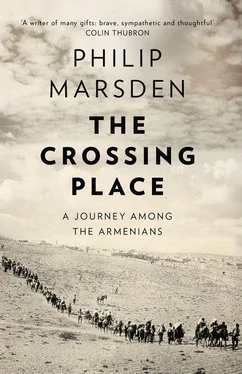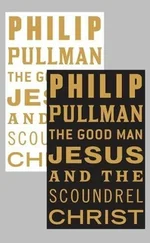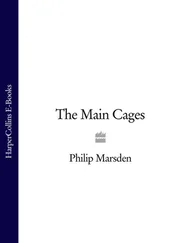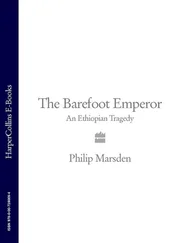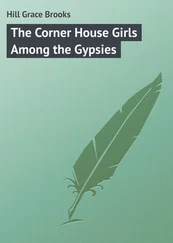‘The church,’ I said. ‘What has happened to the old church?’
‘I don’t know. Some say it’s a café, others that it’s destroyed. No one’s been back.’
At the Greek checkpoint, I signed some papers and they let me through. I walked on past the UN checkpoint, through no man’s land, to the Turkish checkpoint. There, I signed more papers and pledged I’d be back before the border closed at dusk.
While Greek Cyprus has grown fat since the occupation, and its roads purr now with German cars, the Turkish side has become something of a backwater. It is like a sleepy Anatolian town, with peasant families living in the wrecks of old Ottoman villas, grazing sheep and moustachioed cloth merchants with rolls of suiting tucked under their arms. All that still lives of a non-Turkish past are the rusting hulls of Morrises and Hillmans.
The church was hard to find. Victoria street had looked easy on the map, but it was a Greek map and all the names had been changed. Asking for an Armenian church was even less tactful here than in Anatolia. So I idled past the fruit stalls and abandoned hans , the foundries and workshops, followed the zig-zag of the Green Line until, not far in from the western wall, I spied the telling pinnacle of a church tower.
The high gate was padlocked. Its wrought-iron whorls were trussed with barbed wire. A board had been crudely tied to the gate: a victory targe with a soldier bursting from the red and crescent moon of the Turkish flag. Behind it the courtyard appeared untouched from the day of the Nalchadjian wedding. The cypresses were gone and the flagstones bordered with weeds, but it had about it the air of neglect rather than destruction.
Nor was the church a café. That too was abandoned and tufts of grass billowed from its walls. Another Armenian church in ruins. I tried to get in but on the other side was a military assault course, all raked dirt and poles and rope-nets and pits. When I went a little later to Famagusta to see what had become of the fourteenth-century church there, I found it also adjacent to an assault course. There were the poles and rope-nets and pits. I began to wonder whether Armenian churches might form some essential part of Turkish military training.
The following day I left Nicosia to catch the boat to Beirut. In Larnaca a warm wind blew off the sea. The gulls spun in idle circles above the empty hotels. Pinned to the menu-board of one, coyly avoiding any mention of the Gulf War, was a letter from the Cyprus Tourism Organization: ‘We regret the decision of certain tour operators to repatriate their clients from Cyprus. It is as calm and safe as it used to be, and as beautiful for holidays.’
That evening on the docks, waiting for the French to load their military supplies, a Lebanese came up to me. He had a three-inch scar on his jaw.
‘You going to Lebanon?’
‘Yes.’
‘Why do you go to Lebanon? Lebanon is not a good country.’
‘I’ve heard it’s a beautiful country.’
‘You have friends in Beirut?’
‘Yes,’ I lied.
‘Good, but don’t go to West Beirut. If you go to West Beirut, you know what will happen.’
I could guess.
‘They will take you away.’
The exile understands death and solitude in a sense to which an Englishman is deaf.
Storm Jameson
The sun rose behind a bank of dark clouds, spreading shafts of light into the pale sky above. It gave the impression of some vast Georgian fanlight and I stood at the ship’s rail, watching its reflection in the still water, watching the bow-wave as it flopped over and shattered the water. It was just before seven.
The clouds grew larger and turned out not to be clouds at all, but the mountains of Lebanon. They ran up and down the coast, sheer and very dark. Ten miles to the south they fell to a strip of flat land which stuck out to sea like a tongue. From it rose the square blocks of Beirut. Looking at the distant, sun-lit profile I felt as though I was seeing for the first time some notorious celebrity, a mass-killer, a rampant dictator, there in the flesh. Since the Syrians had mopped up the last of General Aoun’s forces a few months before, there had been peace, but it was an uneasy peace. Much of the city remained in the hands of the militias, and almost all of the land outside. Beirut at that time was still the most lawless city on earth.
But for me, it was indispensable. Beirut had long been Armenia’s unofficial capital-in-exile. In the good years the Armenians had operated like a semi-autonomous republic; more than a quarter of a million of them had lived here, with powerful links all over the world. They controlled a great deal of Beirut’s trade and much of its industry. Although half of them had emigrated, the community had survived. The Armenians were the largest of the Lebanese minorities to have remained neutral throughout the war.
I had exactly a week here before the deadline for the land offensive expired in the Gulf. I did not want to be in Beirut for that. I wanted to be well clear of the Lebanon, to have reached Syria. It had been a long, sleepless night. The bars and decks of the ship echoed with the chatter of returning Lebanese. They were all young, all Christian, and all draped in a kind of transparent, satin-jacketed machismo. Among them tottered the relief guard for Beirut’s French embassy, making the most of their last few hours of leave. I talked for a while with a group of officers while they gesticulated over half-bottles of claret; others played roulette with fat, gold-chained Beirutis, while the ranks with their tanned Legionnaire faces burnished with sweat, bellowed at each other around the bar, then dozed head-down on the saloon tables. And over the whole scene, ignored by all, the Saudi desert flickered from two televisions.
In the morning, the French looked groggy and depressed. I waved goodbye on the quay at Jounie and headed up the short ramp and on to the street. I watched the open-backed trucks take them away and the bleary faces staring back as if from a guillotine tumbrel.
I placed my bag on the sea-wall, contemplating my next move. I looked up the road, and looked down the road. I leaned against the wall. Beside me were a couple of crates of red mullet and a fresh ray which flapped about in the dust. A fisherman sat on the rocks mending his nets. The sun had cleared the mountains and shone on the wheelhouse of a scuttled coaster; the torn fringes of a shell-hole curled out of its top-sides. It was a lovely Mediterranean morning, but I felt ill-placed to enjoy it. Who could I trust? Which areas of the city were safe?
I found a taxi; the St Christopher dangling from the driving-mirror was reassuring. We drove in towards Beirut along a coast road littered with the signs of war, between the shoreline and the stern rampart of the mountains, beneath a thirty-foot, Rio-style Christ and the church of Notre Dame de la Délivrance crying ‘Protégez-nous!’ from its concrete pediment. And everywhere hung the faces of half-ruined buildings, shrapnel-scarred and lifeless.
Ten miles was about half-a-dozen checkpoints. We were waved through them all. A convoy of war-weary tanks rattled past. I watched the phalanx of Beirut’s tower blocks grow larger in the windscreen and thought how normal they looked. But their approach made me nervous. When in Antelias I saw a church and its drum and the distinctive crenellated cone, I felt a sudden relief; I recognized it as an old friend.
‘Here!’ I leaned forward. ‘Drop me here.’
The taxi swung off the main road. Weaving to avoid the shell-holes, it pulled up to a pair of black, wrought-iron gates. On them were fixed the twin crosier and mitre of the Armenian Catholicosate of Cilicia.
From Cyprus I had tried to telex the monastery in Antelias, the main centre for Beirut’s Armenians. But my message had failed somewhere. At the gate they had no idea who I was. I presented a to-whom-it-may-concern letter, in Armenian, from the patriarch in Jerusalem and the young priest nodded. He led me to the residence of the Catholicos and left me with a secretary who in turn took me into a large, teak-panelled office. At the far end, behind the broad raft of his desk, sat an elderly cleric.
Читать дальше
